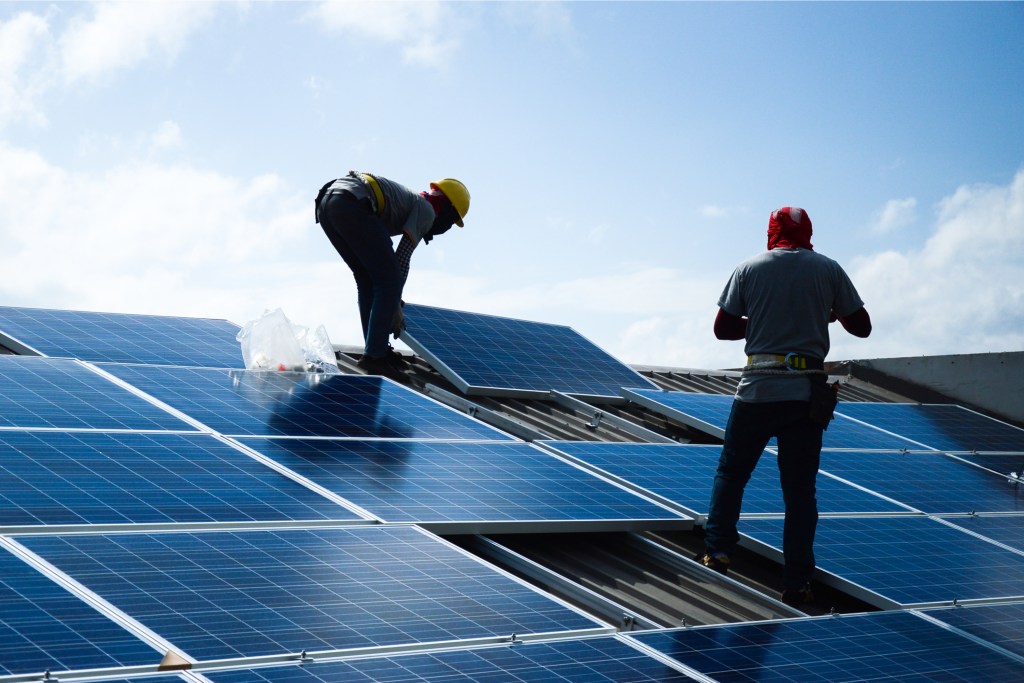If you’re considering making the switch to solar energy, you’re not alone. In 2020, the solar industry generated more than $25 billion in private investment alone, proving that the future of this renewable energy source is quite bright (pun intended). While doing your part to reduce the global reliance on fossil fuels is a noble reason to make the switch, there are plenty of monetary incentives as well.
With all of these money-saving perks of solar energy, there’s no reason not to invest. The planet, and your wallet, will thank you.
Tax breaks
Right now, the government is offering a big incentive for homeowners to convert to solar power. With the federal solar tax credit, you can claim a 26 percent tax credit on any system installed between 2020 and 2022. This means you can save thousands of dollars on the cost of the system and its installation.
If the federal incentive isn’t enough, consider this: You can also combine these tax incentives with local and state tax rebates, too. Using these energy credits, you can easily cut the cost of a solar system for your home by half. To make the most of this opportunity, you have to act quickly, though. These incentives decrease with every year and vary each financial quarter.
Increased home value
Aside from the potential tax breaks, solar energy is also a surefire way to increase your home’s value in the long run. On average, homes with solar sell for thousands more. As more and more millennials begin making their first home purchases, the demand for energy-efficient homes will skyrocket.

Surge protection
Power outages aren’t a concern for every homeowner, but some areas with high population density are used to rolling blackouts. If you live somewhere with overloaded circuit breakers, solar energy is a great way to get off the grid without leaving the city. Many solar-powered systems can store large amounts of energy, ensuring you can keep your home cool in even the hottest summer power blackout.
Lower energy cost
Traditional energy costs can be frustratingly high, even with energy savings programs, loyalty discounts, and conservative electricity use. Plus, costs can soar with larger square footage, vaulted ceilings, poor insulation, and seasonal changes. And these prices are even higher if your home relies only on electric power (e.g., no gas). For many solar systems, the only cost is the initial purchase and installation. Then you can relax knowing you won’t have to pay an arm and a leg for utilities throughout the year.
Immediate savings
Not all homeowners can afford the best solar system for their home, even with tax breaks and local rebates. If you’re worried about having to wait to see these savings pay off, especially if you’re considering selling your home within a few years, don’t worry. You can save immediately, too. The government offers subsidized options to help finance this investment as part of its plan to encourage investment in green energy. Many of these pay-as-you-go plans have low-interest rates and others provide interest-free options for a limited time.

Return on investment
In terms of home improvement, solar power promises to deliver a massive return on your investment. However, to make the most of this pricey endeavor, maintain regular upkeep to keep the cells in tip-top shape.
As solar panels age, their quality degrades, and this degradation rate impacts how efficiently they generate power over time. General heat exposure and wear and tear degrade panels about half a percent per year, so consider this when choosing protective features for the panels like enhanced weatherproofing, critter guards, and sealants.
While these physical protections are necessary, you need contractual ones as well. Check with your solar system’s manufacturer to ensure there’s a warranty. Be sure to reach out to various manufacturers to ensure your warranty is comprehensive and long-lasting.
Most solar panels last anywhere from 25 to 30 years, but proper maintenance is the key to ensuring they last as long as possible.
Clean energy
Of course, the biggest selling point for some homeowners is the sustainability factor. Different systems are more or less efficient based on manufacture and material quality. To choose the most energy-efficient and sustainable system, do your research and don’t hesitate to reach out to a contractor for help.
Clean energy is the way toward a happy and healthy environmental future. It’s also the way to a healthy economic future for you as well. Renewable energy systems will soon become the norm, so take advantage of the promotions available now to illuminate your home and make an investment that will pay you back in multitudes.



